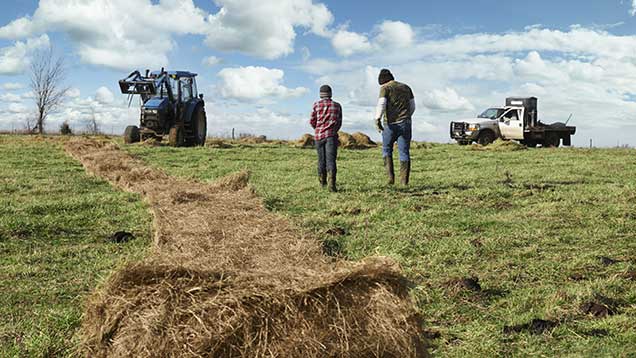Farm inheritance: How to prevent a legal challenge to your will
 ©Image Source/Rex Shutterstock
©Image Source/Rex Shutterstock Adult children are increasingly taking legal action against the inheritance decisions of their parents – but putting in place the right structures can help guard against potentially costly legal battles.
A legal dispute between an estranged daughter and the estate of her late mother, as reported in the press today (Tuesday 28 July 2015), highlights this issue.
According to The Guardian, the mother, Melita Jackson, willed her entire estate (worth nearly £500,000) to three animal charities, cutting out her only child, Heather Ilott, because she had eloped with a boyfriend 37 years ago at the age of 17.
See also: More advice on succession issues
But after nearly a decade of legal battles, Ms Ilott was awarded £164,000 because judges decided her mother’s grounds for leaving her nothing were unreasonable and Ms Ilott would otherwise live in financial desperation.
Don’t rely just on your will
Victoria Smyth, partner at Thrings solicitors, says the case demonstrates the increasing trend of adult children making legal claims on the inheritance decisions of their parents.
Judges are also “taking an increasingly involved analysis”, says Ms Smyth, in deciding what is and is not reasonable.
However, “people absolutely must still make wills,” she warns, but parents should be aware that if they try to exclude a child or treat children differently, this carries the risk of legal dispute.
Even specifying the rationale for such decisions in the will, as Mrs Jackson did, cannot be relied upon.
See also: Read our advice on wills in farming families
Keep your will flexible and look into trust structures
What is more important, say Ms Smyth, is to have a flexible will structure so that claims can be settled before they become legal issues, avoiding potentially lengthy and costly battles in the courts.
Farming families in particular can benefit from a trust structure in which each child is a beneficiary.
This allows trustees to make decisions together, often after the parents have died, although parents can leave non legally binding letters to give guidance.
How trusts can help farming families
Trust structures can last for 125 years from the point of death and so help provide for children as well as grandchildren who might already be adults working on the farm.
A family constitution can also help keep the farm together, says Ms Smyth. For example, it can specify that if any of the trust beneficiaries gets married, they must enter into a pre-nuptual agreement to protect the farm.
Pre-empt any problems
In all, it is better to pre-empt a problem that try to fix one, advises Ms Smyth.
The case with Mrs Jackson’s estate and her daughter is yet another reminder that if there is wealth to be squabbled over, get professional help as soon as possible, she says.
Child-parent litigation cases in farming
At the beginning of 2015 a Welsh farming couple were ordered to pay their daughter, dubbed “Cowshed Cinderella”, £1.3m after having gone back on their word that she would inherit the farm.
